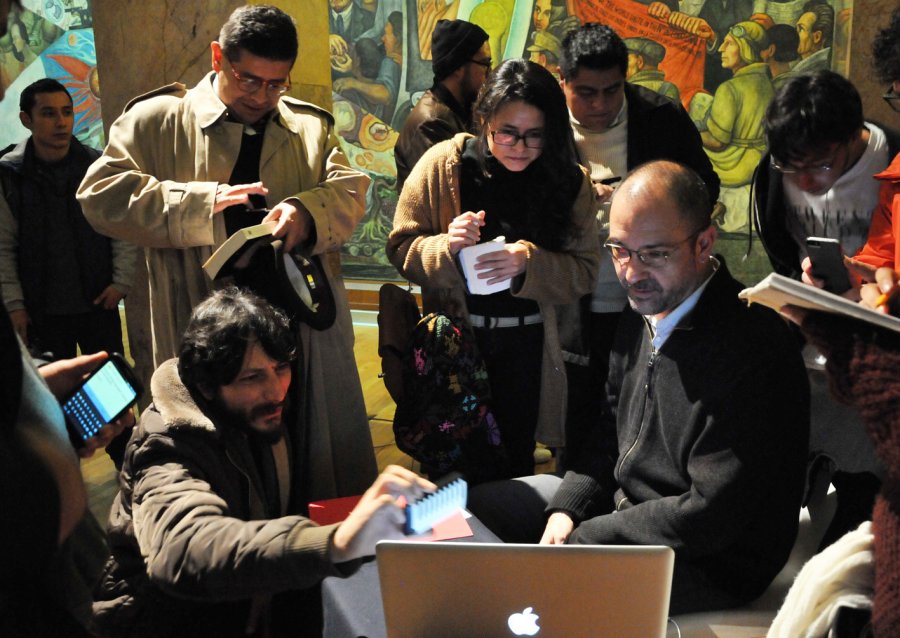Noticias
Within the exhibition, Russian avant-garde. The Vertigo of the Future
Russian avant-garde musical experimentations come to the Palace of Fine Arts
January 14, 2016Thirteen moving, disconcerting and innovative songs that broke with the status quo and expectations of what should be an esthetic artwork in Russia, were addressed by Jose Wolffer in his lecture The music in the Russian avant-garde.
The talk was held in the context of the exhibition, Russian avant-garde. The Vertigo of the Future presented until February 7 in the Palace of Fine Arts Museum
Throughout his talk, the pianist and music critic presented these famous and representative compositions of musical experiments created during the Russian avant-garde movement.
The first piece of the evening was Vals, by Piotr Ilich Tchaikovski, a melody listened carefully by dozens of young people as it is a futuristic work, which focuses on technology and is based on the Theremin, one of the first electronic instruments created at the vanguard and designed by Russian inventor León Theremín.
The next three melodies that sounded were fragments of Victory over the sun, by Mikhail Matiushin, one of the paradigmatic works of the time, since it is the first futurist opera created in the artistic movement, where technological elements are used to recreate in the mind of the listener speed and vertigo environments
From this piece, The goon song sounded, a fragment of the second act and the Military Song of the aviator, works which address the petty bourgeoisie of the time, the rise of technology and the proletariat, where it is out of context and try to put a language that does not make sense in order to innovate, through the noise and the human voice, in the music of the time.
In the Área de Murales (Murals area) of the Palace of Fine Arts Museum, José Wolffer also presented Two visits to the factory, a music section where the piece, The steel mill, by Aleksandr Mosolov and the movement, The steel step, by Sergey Prokofiev, were shown. These songs reflect the epic of the machines, the conductor said.
The author of curatorial and educational projects for various agencies, including the Fonoteca Nacional (National Sound Archive), Instrumenta Oaxaca, Instituto Mexicano de la Radio (Mexican Radio Institute) and the Ministry of Culture, presented the works Symphony of sirens and Funeral march of workers, by the composer, theoretical and cultural official, Arseny Avraamov.
These are pieces that involve an entire city, from a fleet of ships, through explosions and sirens of the factories, to choirs of thousands of workers.
According to the creator of the Radar Festival, it is the work of an outstanding character at the time because he was a visionary to realize it was possible to generate any kind of synthetic sound from the phonograph and defended that all pianos will burn as, in his opinion, they limited the musical sense of the people and songwriters.
The editor of the anthology Silvestre Revueltas: Windows and roads also showed futuristic, avant-garde, acidic and critical works of the composer Aleksandr Mosolov: Four newspaper ads, which describe, taken from a newspaper, news that are set to music and talk about stray dogs, leeches, an absurd name change and a plague exterminator who offers his services.
Finally, the music and performing arts advisor of the Mexican Agency for International Development Cooperation put a piece of the expressionist work Symphony No. 1, by Gavriil Nikoláyevich Popov, which was censored the day after its release in 1935, for being too loud and disturbing.
Mexico,Distrito Federal
